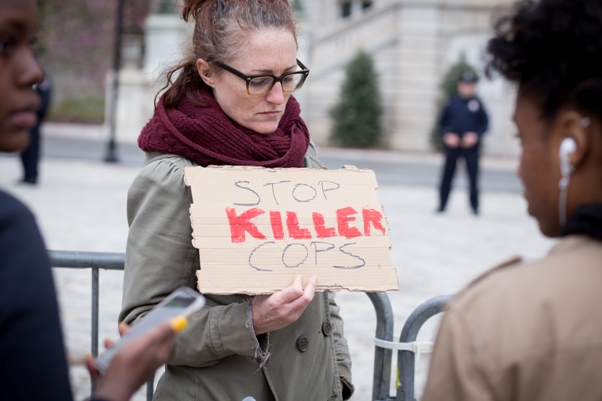Baltimore protesters demand justice in the Freddie Gray case
Nearly a hundred gathered in front of Baltimore’s City Hall on Thursday afternoon protesting police brutality in the death of Baltimorean Freddie Gray. Gray died on April 19 from a devastating spinal injury, a week after police had taken him into custody.
The six arresting officers are currently under investigation and have been suspended. Gray, 25, was arrested on April 12, 2015, in a neighborhood known for drug deals and violent crimes. Gray took off and ran upon seeing police officers at the scene. Officers chased and tackled Gray and took him into custody at 8:40 a.m., after finding a switchblade in his pocket. Two bystanders captured the incident with video recordings.
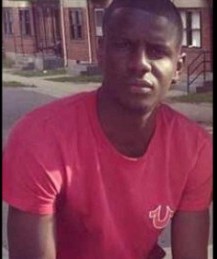
Gray was placed in a transport van within 11 minutes of his arrest, and transported to the Western District police station. About 30 minutes later paramedics arrived to take him to a hospital. He was in a coma within the hour and died a week later.
The department released the officers’ names: Lt. Brian Rice, 41, Officer Caesar Goodson, 45, Sgt. Alicia White, 30, Officer William Porter, 25, Officer Garrett Miller, 26, and Officer Edward Nero, 29.
Three of the officers were on bikes and initially approached Gray, another made eye contact with Gray, a fifth officer joined in the arrest after it was initiated and one drove the police van, police said. Five of the six have provided statements to police. One officer refused to provide a statement.
At the City Hall protest, the mostly African-American crowd, which included activists and concerned citizens, directed their anger at Mayor Stephanie Rawlings-Blake and the Police Department.
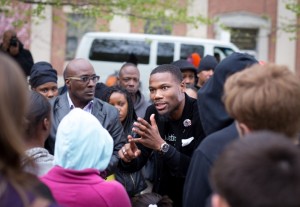
“No justice, no peace,” shouted a group of protesters led by Rev. Westley West, founder of Baltimore based Faith Empowered Ministries, as members of the crowd challenged the Mayor to come outside and answer questions.
West, although seemingly confrontational, urged followers to remain calm and reject violence, even when some in the crowd recommended otherwise.
“We are all about unity and [building] strong communities,” West said.
As the day wore on, the crowd grew exponentially and descended upon the nearby police station where confrontations intensified.
The Baltimore Fraternal Order of Police Lodge 3 issued a statement on Wednesday that did not sit too kindly with several of the protestors.”While we appreciate the right of our citizens to protest and applaud the fact that, to date, the protests have been peaceful, we are very concerned about the rhetoric of the protests,” the statement said. “In fact, the images seen on television look and sound much like a lynch mob, in that they are calling for the immediate imprisonment of these officers without them ever receiving the due process that is the constitutional right of every citizen, including law enforcement officers.”
By 7 p.m., the crowd in front of City Hall had largely dispersed. But a number of the protesters who remained expressed outrage when asked about reports that they had been compared to a lynch mob.
“It’s tragic, but it’s something that goes on consistently,” said Baltimore County resident Everton Brown. “The system definitely needs to be overhauled; the system is just corrupt. The police can use and abuse excessive force with no thought and no consequences. That, in itself, is bad for the community; for the nation.”
When asked about the lynch mob inference, Brown replied, “From what I’ve seen it’s a peaceful protest. Lynch mobs want to hurt someone. I don’t see any injury and no one doing anything erratic and crazy.”
“It’s political, and it’s something that’s been going on for a long time,” maintained Reservoir Hill resident “Tek”. “It’s sad that there had to be this death for this to come out into the light. At any given time, you can go to east Baltimore, south Baltimore, west Baltimore and the people will tell you – the police are out of control.”
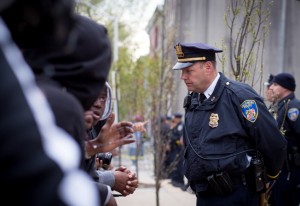
Tek said he is employed in a service-related field and has been stopped by police on occasion simply because he was working in a so-called “drug area”. “What do they consider a drug area? EVERYWHERE in Baltimore is a drug area. It’s a shame that this has to happen state to state and city to city, but people need to open their eyes.”
When asked about the city police union’s characterization of the peaceful demonstrators as a “lynch mob,” West said he found those remarks “regrettable,” but said justice can be achieved working within the system.
Glova Scott, Socialist Workers Party member and candidate for DC city council, did not share West’s optimism.
“Police [exist] to protect the rich, and see [people] like us as criminals,” Scott said.
Scott added, “Capitalism doesn’t work for most of us” and suggested those concerned about police brutality should strive to “build a new movement [that would] take power away from the wealthy.”
Across the plaza, a handful of protesters gathered on the corner of West Fayette and Gay Streets to wave “Black Lives Matter” signs at passing motorists. Several motorists honked their horns in solidarity with the protesters.
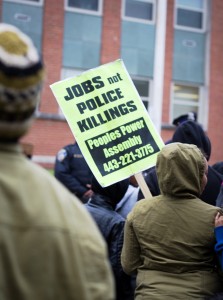
“The wild mob is the police,” said A.J., who attended the rally with several school age grandchildren. “They’ve been lynching us for generations. But it’s really coming to light. God don’t like that now. God is tired of them killing our children. They’re the lynch mob!”
“Here’s what you do,” suggested city resident Justin, who paused for a moment to shepherd the children out of the street. “You tally the amount of police who have been killed by protesters and the amount of protesters who have been killed by police and then you have your verdict. You don’t have to go to history books. You don’t have to go to Missouri or Alabama. You can come to Baltimore and see what’s going on.”
But most chose to focus on Freddie Gray and the fate of the arresting officers.
“They should be charged with first-degree murder,” said 31-year old Brandon Johnson who attended with his family.
Will Sparrow, 41, whose brother is a police officer, was more cautious.
“It’s hard to say; the evidence must first be examined,” he said.
Sparrow, a Navy veteran and skilled in martial arts, said police are no different from civilians, and they don’t purposely target people.
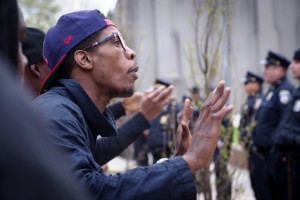
However, Sparrow said police “should wear body cameras” and that would be beneficial to both the officer and the suspect, because “cameras don’t lie.”
Some were inquisitive.
“Who knows what happened? Ask the police!” said Roger Cooper, 47, when asked what he thought happened to Gray.
Cooper stated almost everyone in his community had been victimized by police at some point and held a poster listing names and pictures of African-Americans who had been killed by officers over the past few years.
One man was disenchanted with local race-relations.
“Baltimore is a segregated city, and everything is [linked] to race in one-way or another”, said J.C. Faulk, 54.
Protests are expected to continue throughout the weekend.
(Anthony C. Hayes contributed to this report.)
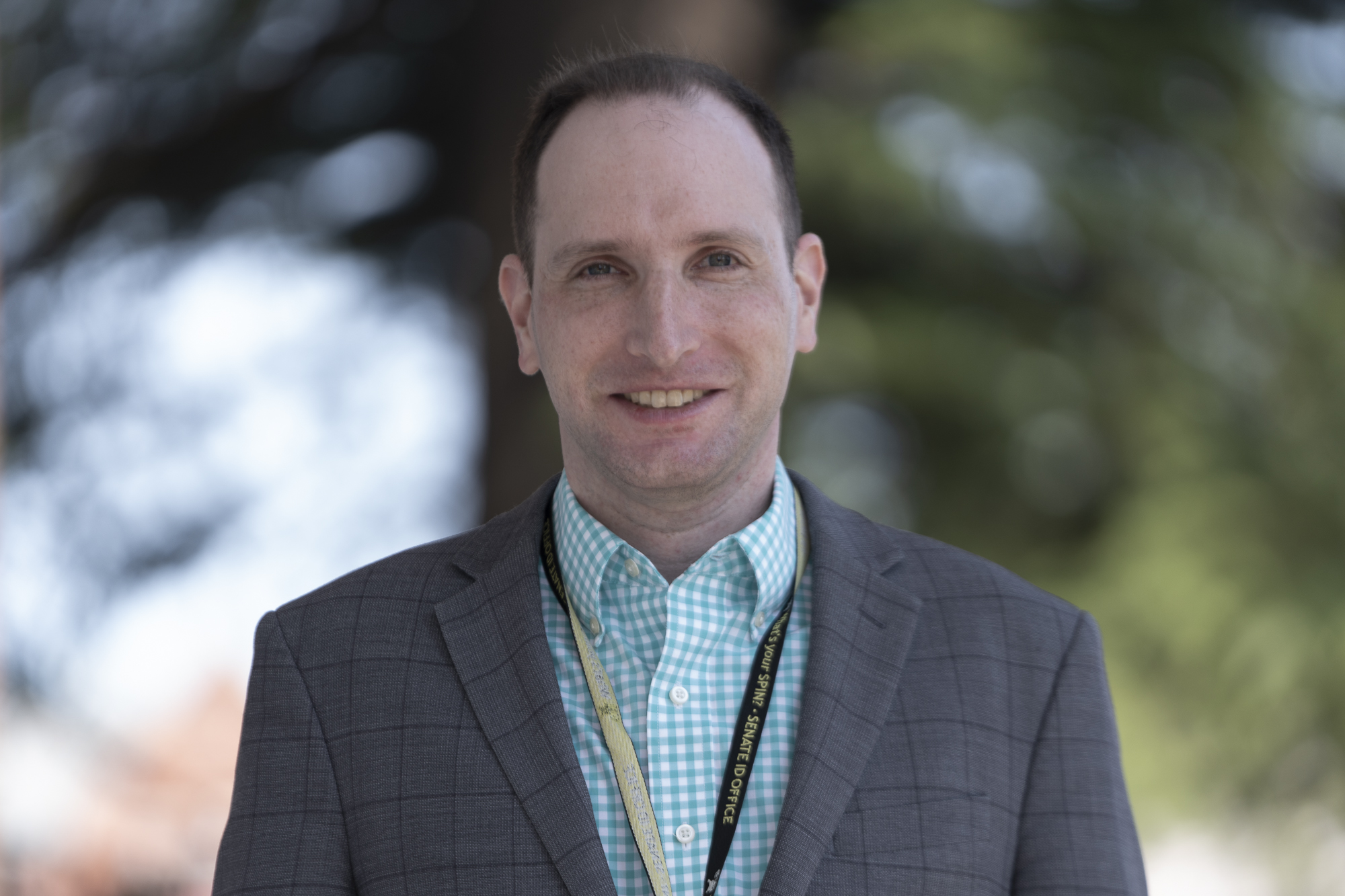
Bryan is the managing editor of Baltimore Post-Examiner.
He is an award-winning political journalist who has extensive experience covering Congress and Maryland state government. His work includes coverage of the first election of President Donald Trump, the confirmation hearings of Supreme Court Justice Brett Kavanaugh and attorneys general William Barr and Jeff Sessions, the Maryland General Assembly, Gov. Larry Hogan, and the COVID-19 pandemic.
Bryan has broken stories involving athletic and sexual assault scandals with the Baltimore Post-Examiner.
His original UMBC investigation gained international attention, was featured in People Magazine and he was interviewed by ABC’s “Good Morning America” and local radio stations. Bryan broke subsequent stories documenting UMBC’s omission of a sexual assault on their daily crime log and a federal investigation related to the university’s handling of an alleged sexual assault.

